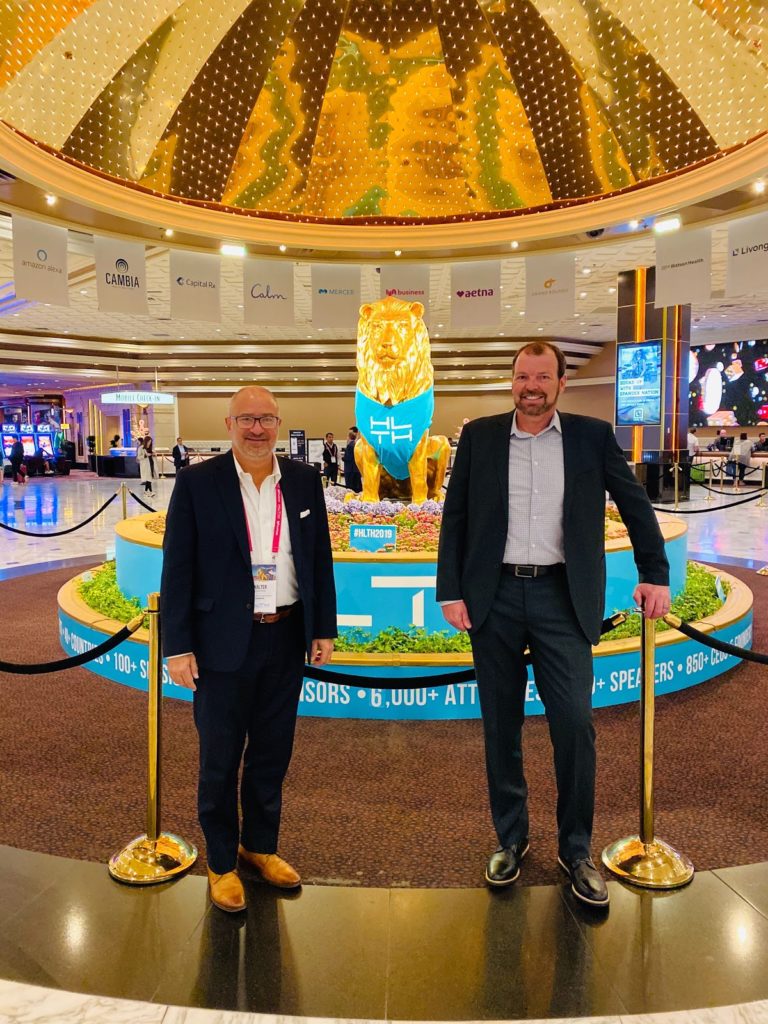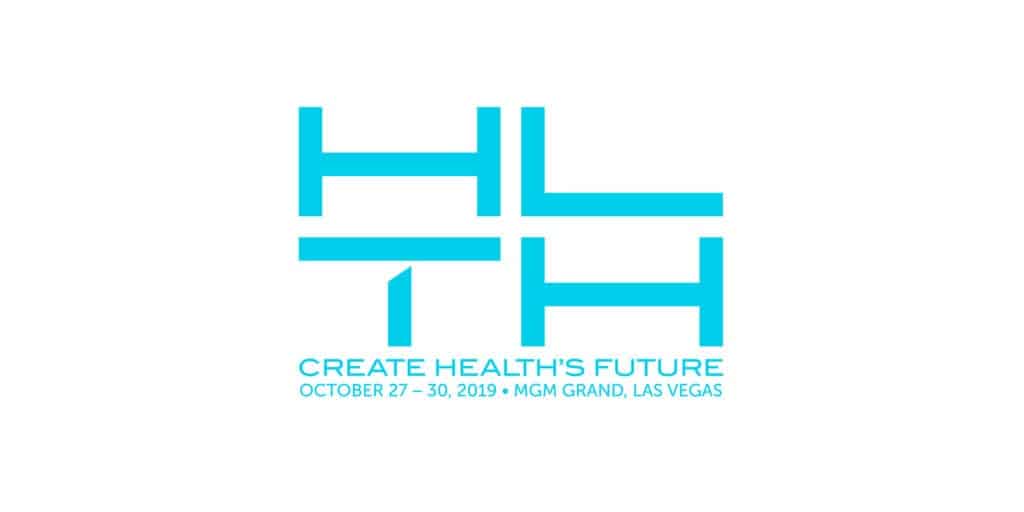Jim Rogers and I recently attended the HLTH 2019 event in Las Vegas. With a theme of Defining the Future of Healthcare, it featured an information-packed agenda with leaders from across healthcare sharing their insights. The speakers were incredible, with each session rich in valuable content.

The HLTH team did an incredible job curating speakers for this event. There were over 6,000 attendees, 900 CEO and Founders of companies, and 350 speakers. I have been attending health conferences for well over 20 years and this is the first event that has brought together leaders from across the industry — providers, payers, life sciences, and government — to talk about how they are defining the future of healthcare. This is critical since each segment can make an impact but industry change will not occur until all of these sub-groups within healthcare and life sciences work together.
A focus on women in healthcare
Jonathan Weiner, the CEO of HLTH, kicked off the event, highlighting work they’ve been focusing on over the last year. One of the most welcomed initiatives was HLTH increasing the focus on women in healthcare. It has been shown that when women are in executive positions, organizations perform better. Why then are only 13% of CEOs and 30% of C-suite individuals women in healthcare today? Improving on this was a focus of HLTH this year and there were many sessions and events specifically focused on celebrating the impact women have on healthcare and continuing to elevate them to executive positions based on their accomplishments. (Congrats to the HLTH team for prioritizing this need!)
There were many themes throughout the conference, but the following really stood out:
- The individual, the consumer, the patient, and their environment and preferences
- Advanced technology is making an impact on improving care, specifically genomics
- New business models are emerging and delivering significant value and outcomes for patients
- The healthcare ecosystem is starting to come together
- Unique entrants may lead the change
The Individual, the consumer, and the patient
Session after session, whether it was payers, providers, or life sciences organizations, all had an incredible focus on the individual, understanding their preferences and life situations, along with engaging them in the method of their choice. Every individual needs to benefit from the transformation; we can leave no individuals behind. During one refreshing panel with Cleveland Clinic, Cedar Sinai, and Northwell, there was a recognition that we have a long way to go to deliver on consumerism. We are on the right path, but we don’t really know all we need to about our patients.
Much of the discussion focused on listening differently. As we strive to better understand consumers, we need to recognize that not all individuals have the same healthcare journey and need to be treated differently. For example, when a patient is discharged for Stage 2 cancer, understanding their journey is much different than that of someone who was discharged for pneumonia.
Advanced technology is making an impact on improving care
From the start of the sessions, we heard stories about how genomics are becoming more mainstream in care delivery and diagnosis. The CEO of Illumina spoke about his organization and how technological advances are making it more affordable for genomic testing, and how these tests are used to differentially diagnose individuals and make a positive impact on their care. The CEO of the Children’s Hospital of Philadelphia told three compelling stories about how genomics were used to diagnose and better treat patients, in one case uncovering a unique disease that went undiagnosed for some time.
New business models are emerging and delivering significant value and outcomes for patients
There were numerous sessions highlighting how organizations are focused on delivering more value to patients, and not just insurance and payments. We heard from organizations like Paladina who are improving the health of their patients by providing employer-sponsored, direct primary care.
Maven is focused on women’s health, new moms, and filling gaps in access to women’s care. There were a good number of sessions and discussions on home health and telehealth as alternate models of delivering care.
What was most compelling was not the models, but the results. Paladina, for example, provides 24/7 care for the populations they serve while improving care and decreasing the cost of that care by 10-25%. The difference I heard in all these discussions was that they are all providing a better consumer experience and delivering positive outcomes.
The healthcare ecosystem is starting to come together
As I said earlier, this is the first conference that has brought together all the constituents in the healthcare ecosystem: providers, payers, life sciences, and government.
While there is still some debate surrounding the cost of medication and whether insurance companies priorities align with consumers — seeing how these organizations are interacting as an ecosystem shows that a path to industry transformation is being paved.
Unique entrants may lead the change
All of the typical new entrants were there: CVS, Walmart, and Google. But the biggest positive surprise was the discussion with Mark Cuban. Mark has taken a keen interest in healthcare and is focusing on trying to make a positive change. His session is on YouTube and I’d encourage folks to watch. He is making some bold moves to try and do what he can to fix a broken system. He has made a play in the pharmaceutical area and is finalizing his proposed plan for the U.S. healthcare system on his website. He shared some of his approach, and I cannot wait for the full plan to be released. As he said, he doesn’t have all the answers, but being an outsider, he is trying to overcome some of the standard norms to affect change.
All of this demonstrates amazing progress, but this success needs to be orchestrated and scaled so we make an impact on the industry as a whole and not just in pockets. We need to start somewhere, so this progress on defining the future of healthcare is encouraging and exciting.
Is your company ready to innovate with a better healthcare system? Check out our healthcare offerings.




